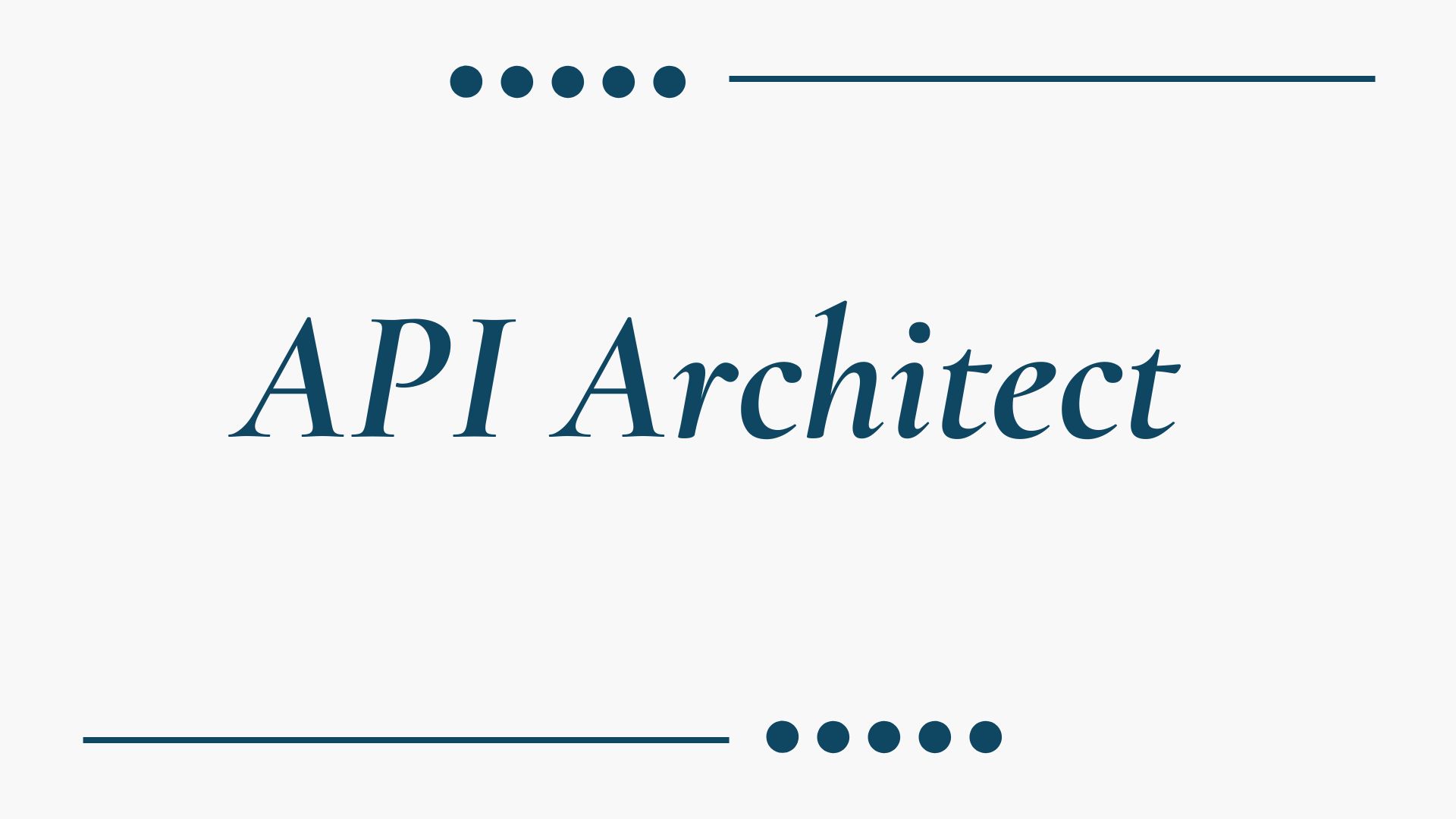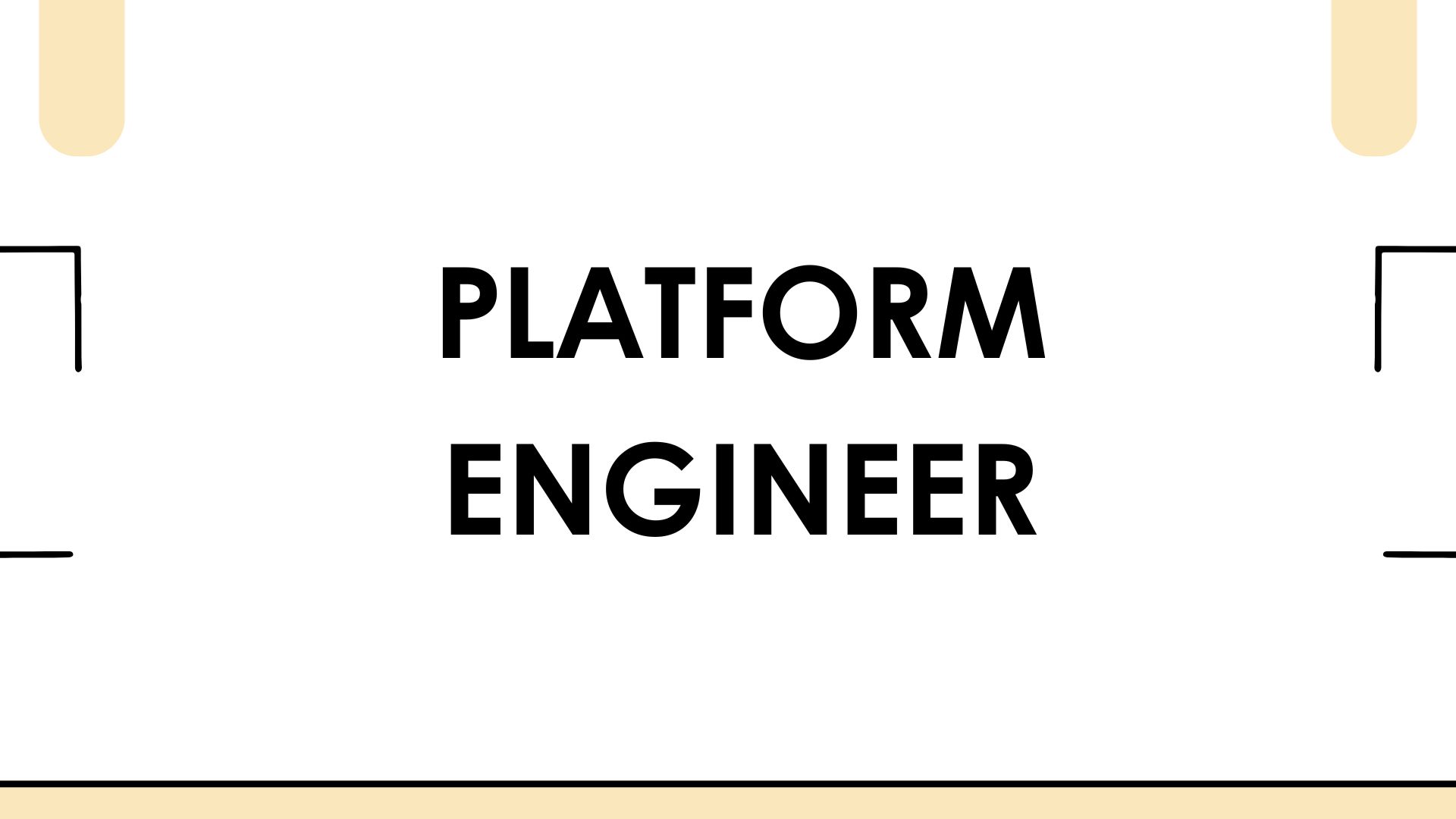TRUSTED BY THE SMARTEST TEAMS IN THE WORLD FOR CERTIFIED CANDIDATES
SPOTO Blogs
Useful learning materials to become certified IT personnel
-
- 1809
- SPOTO
- 2025-06-03 11:30
-
- 2921
- SPOTO
- 2025-06-03 11:02
-
- 857
- SPOTO
- 2025-05-30 12:15
-
- 922
- SPOTO
- 2025-05-30 11:50
-
- 884
- Emma
- 2025-05-30 11:45
-
- 867
- SPOTO
- 2025-05-30 11:16
-
- 909
- Emma
- 2025-05-30 11:07
-
- 739
- SPOTO
- 2025-05-30 10:51
-
- 760
- Emma
- 2025-05-29 16:11
TRUSTED BY THE SMARTEST TEAMS IN THE WORLD FOR CERTIFIED CANDIDATES
SPOTO Blogs
Useful learning materials to become certified IT personnel
-
- 1809
- SPOTO
- 2025-06-03 11:30
Table of Contents1. What is an Implementation Consultant?2. What does an Implementation Consultant do?3. Career Insights: Salary, Outlook & Related Roles4. What Are the Qualifications to Become an Implementation Consultant? Implementation consultants are third-party contractors hired by companies to deploy and integrate specific solutions or software into a client's business environment and are responsible for managing large projects.This article will introduce you to what an Implementation Consultant is, the career information and prospects of an Implementation Consultant and the necessary conditions to become an Implementation Consultant. 1. What is an Implementation Consultant? Implementation consultants are third-party contractors hired by companies to deploy and integrate specific solutions or software into a client's business environment and are responsible for managing large projects. 2. What does an Implementation Consultant do? Implementation consultants are responsible for setting up, configuring, and testing new software systems before deployment to ensure that there are no functional issues or disruptions to daily business operations. At the same time, they must consider the customer's current business processes and interface requirements to configure our software to meet their specific needs. Specifically, they have the following job responsibilities: setting up, configuring, and testing new systems before deployment; analyzing the customer's business processes and interface requirements; assisting with end-user training; providing user support and resolving issues. 3. Career Insights: Salary, Outlook & Related Roles (1) Implementation Consultant Salary According to ZipRecruiter data on May 26, 2026, the average annual salary for an Implementation Consultant in California is $111,493. That works out to about $53.60 per hour. That's $2,144 per week or $9,291 per month. Salaries range from as high as $188,499 to as low as $43,917, but most Implementation Consultant salaries currently range from $72,000 to $146,100, with the highest earners making $172,214 per year in California. The average salary range for an Implementation Consultant varies widely (as much as $74,100), which means there may be many opportunities for advancement and increased pay based on skill level, location, and years of experience. (2) Job Outlook of Implementation Consultant According to data from the Zippia website, the expected growth rate for implementation consultant positions is 11% from 2018 to 2028, and approximately 108,400 new implementation consultant positions will appear in the next decade. Although there are currently more than 7,600 implementation consultants in the United States, there are 70,450 active implementation consultant job vacancies in the United States. Overall, the employment outlook for implementation consultants is relatively optimistic. (3) Similar Occupations IT Infrastructure Project Manager Systems Engineering Manager Infrastructure Operations Manager System Administrator/Senior Infrastructure Manager Network Administrator Database Administrator Security Manager Functional Consultant Business Analyst Product Implementation Specialist Change Management Consultant 4. What Are the Qualifications to Become an Implementation Consultant? (1) Obtain a Bachelor's Degree During the job search, employers tend to recruit candidates with relevant majors. The degree requirement for implementation consultants is usually a bachelor's degree in a related field, such as computer science, business administration, or information technology. For example, Teal points out that a bachelor's degree in information technology, computer science, business administration, or a related field is often popular. Of course, a higher degree can help career advancement. (2) Develop professional skills Whether through schooling, hands-on experience, or community involvement, upskilling is essential. Here are some relevant job skills that help implementation consultants improve: First, implementation consultants need to keep up with the latest software and tools in the industry. Get hands-on experience with cloud platforms, CRM systems, and enterprise resource planning (ERP) software, which are currently in high demand. And with the growing security concerns, it is increasingly important to understand cybersecurity best practices and how to incorporate them into your implementation. Second, implementation consultants need to continuously improve their advanced data analysis skills and develop the ability to interpret and utilize data analysis to drive successful implementation strategies and provide actionable insights to clients. Furthermore, it is necessary to deepen expertise in project management frameworks such as Scrum, Kanban, or Six Sigma to improve project delivery and efficiency. Finally, implementation consultants need to strengthen communication and stakeholder management, and improve their ability to clearly communicate complex ideas and manage stakeholder expectations through targeted training and practical practice. And regularly solicit feedback from clients and peers, and reflect on your project experience to identify areas for improvement and personal growth. (3) Earn Industry Certifications Obtaining a certification that is highly recognized by the industry can prove your professional ability and ability to perform the position, and can also enhance your competitiveness in the workplace. Therefore, we recommend that you obtain the Cisco Meraki Solutions Specialist Certification The Cisco Meraki Solutions Specialist Certification, offered by Cisco, is a prestigious credential recognized worldwide. It validates an individual's expertise in managing and deploying Meraki solutions. This certification signifies a professional’s ability to configure and troubleshoot Meraki networks and devices effectively. Certified Cisco Meraki Solutions Specialists play a crucial role in maintaining the efficiency and reliability of network infrastructures using Meraki technology. -
- 2921
- SPOTO
- 2025-06-03 11:02
Table of Contents1. What is an IT Infrastructure Specialist?2. What does an IT Infrastructure Specialist do?3. Career Insights: Salary, Outlook & Related Roles4. What Are the Qualifications to Become an IT Infrastructure Specialist? IT infrastructure specialists are IT professionals who are responsible for designing, maintaining and coordinating the hardware, software and network systems of an enterprise or organization.This article will introduce you to what an IT Infrastructure Specialist is, the career information and prospects of an IT Infrastructure Specialist and the necessary conditions to become an IT Infrastructure Specialist. 1. What is an IT Infrastructure Specialist? IT infrastructure specialists are IT professionals who are responsible for designing, maintaining and coordinating the hardware, software and network systems of an enterprise or organization. 2. What does an IT Infrastructure Specialist do? The responsibilities of an it infrastructure specialist include the following: First, they need to develop functional and technical requirements and specifications, that is, implement defined processes and practices to manage systems, software, and networks to ensure consistent and reliable operation to meet business needs. Secondly, manage accounts, documents, and access rights to systems and devices, monitor the performance, capacity, availability, maintainability, and recoverability of installed systems, and diagnose, troubleshoot, and resolve system problems and/or respond to outages. Finally, ensure that the rigorous design and development of custom programs complies with information security/information assurance policies, principles, and practices. 3. Career Insights: Salary, Outlook & Related Roles (1) IT Infrastructure Specialist Salary According to ZipRecruiter data on May 26, 2026, the average annual salary for IT Infrastructure Specialists in the United States is $84,361. That's $40.56 per hour. That's $1,622 per week or $7,030 per month. Annual salaries can be as high as $146,500 and as low as $31,000, but most IT Infrastructure Specialists currently make between $65,000 and $98,500, with top earners making as much as $132,000 per year across the United States. The average salary range for IT Infrastructure Specialists varies widely (up to $33,500), which means there may be many opportunities for advancement and pay increases based on skill level, location, and years of experience. (2) Job Outlook of IT Infrastructure Specialist As one of the occupations in computer and information technology, IT Infrastructure Specialist has a strong and optimistic job outlook. According to data from the U.S. Bureau of Labor Statistics, the overall employment growth rate of computer and information technology occupations is expected to be much faster than the average for all occupations between 2023 and 2033. Due to job growth and the need to replace workers who permanently leave this occupation, it is expected that these occupations will have an average of about 356,700 job vacancies each year. (3) Similar Occupations System Administrator Network Engineer IT Support Specialist Infrastructure Engineer DevOps Engineer Solutions Architect IT Infrastructure Manager IT Field Engineer Enterprise Support Specialist IT Support Engineer 4. What Are the Qualifications to Become an IT Infrastructure Specialist? (1) Obtain a Bachelor's Degree In the job search process, employers tend to recruit candidates with relevant majors. The degree requirements for IT Infrastructure Specialist are usually a bachelor's degree in a related field such as computer science, engineering, or information technology. Of course, a higher degree can help career development. (2) Develop professional skills it infrastructure specialistIT is a key position in the information technology department of an enterprise. This position requires a number of technical capabilities, including operating system management (such as Windows Server, Linux), network configuration and maintenance (such as TCP/IP, VPN, VLAN), virtualization technology (such as VMware, Hyper-V), cloud platform operations (such as AWS, Azure) and database management. In addition, it is necessary to have practical experience in backup and disaster recovery mechanisms and understand basic information security technologies (such as firewalls and intrusion detection systems). In addition to technical capabilities, IT infrastructure specialists also need to have excellent problem-solving skills, communication and coordination skills, project management experience and the ability to quickly learn and adapt to new technologies. Common related certifications include CompTIA A+, Network+, Security+, Cisco CCNA, Microsoft Azure certification and ITIL Foundation. (3) Earn Industry Certifications Obtaining a certification that is highly recognized by the industry can prove your professional ability and ability to perform the position, and can also enhance your competitiveness in the workplace. Therefore, we recommend that you obtain the Cisco Meraki Solutions Specialist Certification.The Cisco Meraki Solutions Specialist Certification, offered by Cisco, is a prestigious credential recognized worldwide. It validates an individual's expertise in managing and deploying Meraki solutions. This certification signifies a professional’s ability to configure and troubleshoot Meraki networks and devices effectively. Certified Cisco Meraki Solutions Specialists play a crucial role in maintaining the efficiency and reliability of network infrastructures using Meraki technology. -
- 857
- SPOTO
- 2025-05-30 12:15
Table of Contents1. What is a Video Conferencing Engineer?2. Why become a Video Conferencing Engineer?3. Career Insights: Salary, Outlook & Related Roles4. What Are the Qualifications to Become a Video Conferencing Engineer? 1. What is a Video Conferencing Engineer? Video conferencing engineers are professional technicians responsible for the design and maintenance of all audio-visual rooms, video conferencing equipment, and web/audio conferencing solutions. 2. Why become a Video Conferencing Engineer? As more and more companies rely on virtual meetings to connect global teams, the demand for video conferencing engineers is increasing. Becoming a video conferencing engineer can put you at the forefront of communication technology, supporting companies to implement and maintain advanced video conferencing systems to achieve seamless remote collaboration. Secondly, the work environment of video conferencing engineers is diverse and dynamic, with access to the latest audio-visual technology, network infrastructure, and collaboration platforms. Finally, this position has good career development space and can be promoted to senior technical positions, solution architects, or management positions in the future. 3. Career Insights: Salary, Outlook & Related Roles (1) Video Conferencing Engineer Salary According to ZipRecruiter's May 22, 2026 data, the average annual salary for video conferencing engineers in the United States is $82,968. That's about $39.89 per hour. That's $1,595 per week or $6,914 per month. Annual salaries can be as high as $140,500 and as low as $11,500, but most video conferencing engineers currently make between $70,000 and $118,500 per year, with top earners making as much as $137,000 per year across the United States. The average salary range for video conferencing engineers varies widely (as high as $48,500), which means there may be many opportunities for advancement and pay increases based on skill level, location, and years of experience. (2) Job Outlook of Video Conferencing Engineer The Job Outlook of Video Conferencing Engineer is strong, and the market demand for this type of talent is rising. According to the U.S. Bureau of Labor Statistics, the overall employment of broadcast, sound, and video technicians is expected to grow by 3% from 2023 to 2033, which is about the same as the average growth rate for all occupations. It is expected that there will be an average of 12,900 job openings per year for broadcast, sound, and video technicians over the next decade. Many of these job openings are expected to fill those who change careers or exit the labor market (such as retirement). (3) Similar Occupations AV Engineers Sound Engineers Broadcast Technicians Network Engineers Unified Communications Engineers Event Technology Specialists Collaboration Engineers AV Support Technicians 4. What Are the Qualifications to Become a Video Conferencing Engineer? (1) Obtain a Bachelor's Degree In the job search process, employers tend to recruit candidates with relevant majors. The degree requirements for Video Conferencing Engineer are usually a bachelor's degree in a related field such as computer science, engineering, or information technology. Of course, a higher degree can help career development. (2) Develop professional skills Video conferencing engineers often require job applicants to have the following professional skills: First, job applicants need to have relevant work experience in information technology within large corporate organizations. Second, they need to have experience in the design, implementation, and upgrade of AV equipment and control systems. Third, job applicants should have extensive experience in Skype/Teams conference and voice solutions (O365 Online). (3) Earn Industry Certifications Obtaining a certification that is highly recognized by the industry can prove your professional ability and ability to perform the position, and can also enhance your competitiveness in the workplace. Therefore, we recommend that you obtain the Cisco 500-301 CCS(Cisco Cloud Collaboration Solutions).The Cisco 500-301 CCS certification demonstrates that you have solid technical skills and practical experience in designing, implementing and managing cloud-based collaboration solutions to help enterprises achieve efficient, flexible and secure communication and collaboration. -
- 922
- SPOTO
- 2025-05-30 11:50
Table of Contents1. What is an API Architect ?2. What does an API Architect do?3. Career Insights: Salary, Outlook & Related Roles4. What Are the Qualifications to Become an API Architect ? 1. What is an API Architect ? API Architect refers to a senior project management role that leads a software development team or organization to design, implement, and maintain the enterprise's API framework to ensure the scalability and secure operation of the API framework. 2. What does an API Architect do? The work of API framework engineers mainly revolves around the API-first strategy. In enterprises, they are often responsible for defining API standards, guidelines, and best practices for development teams to design and implement scalable and secure API architectures for enterprises. Secondly, they work with stakeholders to collect requirements and transform them into API solutions. If there is an existing API infrastructure, it should be managed and evaluated, and corresponding improvement suggestions should be made to ensure that the API solution meets security, performance, and reliability standards. Finally, API framework engineers need to understand emerging API technologies and industry trends and provide technical leadership and guidance to development teams. 3. Career Insights: Salary, Outlook & Related Roles (1) API Architect Salary According to data from the ZipRecruiter website on May 22, 2026, the average hourly wage for API architects in the United States is $72.38. The hourly wage can be as high as $91.59 and as low as $42.79, but currently most API architects in the United States earn between $67.31 and $77.88. The average salary range for API architects does not vary much (about 10). (2) Job Outlook of API Architect As more and more global companies adopt API-first strategies and the demand for API-related personnel increases, the demand for skilled API architects continues to increase. In the future, with the continuous development and application of APIs, related positions will continue to increase. (3) Similar Occupations Integration Architect Solutions Architect Enterprise Architect Backend Engineer Software Architect Platform Engineer DevOps Engineer Cloud Solutions Architect Security Architect Technical Product Manager 4. What Are the Qualifications to Become an API Architect ? (1) Obtain a Bachelor's Degree In the job search process, employers tend to recruit candidates with relevant majors. The degree requirements for API Architect are usually a bachelor's degree in computer science, information technology or related fields.Of course, a higher degree can help career development. (2) Develop professional skills The main job skills required of an API framework engineer are as follows: in-depth understanding of RESTful API, microservices and integration patterns; experience with API management platforms and gateways; familiarity with security protocols such as OAuth, JWT and API keys; excellent communication and interpersonal skills; teamwork ability and the ability to lead technical discussions and guide development teams; strong analytical and problem-solving skills. (3) Earn Industry Certifications Obtaining a certification that is highly recognized by the industry can prove your professional ability and ability to perform the position, and can also enhance your competitiveness in the workplace. Therefore, we recommend that you obtain the DevNet Expert certification, on the one hand because Cisco certification enjoys a high degree of recognition in this field, and on the other hand because this certification can prove that you have the ability to design and develop advanced network automation solutions throughout the network life cycle from concept and deployment to operation and optimization. -
- 884
- Emma
- 2025-05-30 11:45
Table of Contents1. What does a Program Manager do?2. Why become a Program Manager?3. How to become a Program Manager?4. Conclusion Have you ever wondered what it takes to oversee multiple projects that drive an organization forward? Or whether stepping into a role that combines strategic thinking, leadership, and coordination might be your next big move? If so, you're not alone. More professionals are exploring program management as a dynamic, impactful career—something that offers not only personal growth but also excellent earning potential. So, what exactly is a Program Manager? In simple terms, a Program Manager is a strategic leader responsible for overseeing a set of related projects that contribute to a larger organizational goal. Unlike project managers, who focus on individual projects, program managers coordinate multiple interconnected projects, develop strategies, manage resources, and align efforts with company-wide objectives. 1. What does a Program Manager do? Roles and Responsibilities The role of a Program Manager is both broad and vital. They act as a bridge between executive strategies and project execution. Their key responsibilities include Strategic Planning: Aligning projects with organizational goals to ensure the program delivers maximum value. Program Governance: Setting policies, defining roles, and establishing decision-making structures. Stakeholder Communication: Engaging stakeholders early and often, ensuring everyone remains informed and aligned. Risk Management: Identifying potential issues before they escalate and formulating mitigation plans. Monitoring and Reporting: Tracking progress toward milestones, adjusting plans as needed, and reporting outcomes. Collaboration with Project Managers: Providing guidance and overseeing multiple project teams to prevent redundancy and optimize resource utilization. Think of program managers as the strategic masterminds who keep the entire organization's initiatives moving smoothly and in harmony. Skills needed to succeed as a program manager Becoming an effective program manager requires a diverse skill set, blending strategic thinking with leadership and communication. Essential skills include Leadership and team management Strategic and creative thinking Excellent communication skills Analytical and organizational expertise Risk management and problem-solving Negotiation and conflict resolution Adaptability under pressure To hone these skills, SPOTO offers comprehensive courses such as their Project Management Professional Certification, designed to prepare aspiring professionals with the latest methodologies and industry best practices. 2. Why become a Program Manager? The benefits are compelling: Attractive Salary: The average annual salary for a program manager is around $88,339, with higher earnings in industries like technology and finance. Job Growth: The field is projected to grow by 12% by 2028, reflecting high demand. Diverse Opportunities: Industries such as IT, healthcare, retail, and finance actively seek talented program managers. Strategic Influence: You get to shape organizational strategies, influence decisions, and lead change initiatives. Plus, many program managers start as project managers, gaining experience and moving up the ladder. If you're currently working in project management, upskilling with courses from institutions like SPOTO can accelerate your transition into this strategic role. Job Titles Related to Program Manager Project Manager Portfolio Manager Program Director Product Manager Operations Manager 3. How to become a Program Manager? Breaking into this role involves a combination of education, experience, and ongoing skill development. Here's a quick roadmap: Obtain a Relevant Degree The majority of successful program managers earn at least a bachelor's degree in business administration, computer science, or a closely related discipline to establish a solid educational foundation for their careers. Gain Project Management Experience Start as a project manager, leading and coordinating projects. SPOTO's project management courses provide hands-on training to prepare you for future leadership. Earn Professional Certification Certifications like the PMI Project Management Professional recognize your expertise and boost your credibility. SPOTO's certification prep courses are designed to guide you through the process. Develop Essential Skills Cultivate leadership, strategic thinking, and communication skills through specialized training, workshops, and real-world practical experience to enhance your effectiveness as a program manager. Most successful program managers have a track record of leading projects, managing teams, and demonstrating their strategic value. 4. Conclusion In our fast-evolving business environment, program management stands out as a role that not only challenges your intellect and leadership abilities but also offers rewarding career prospects. Whether you're currently a project manager or looking to pivot into a strategic leadership position, developing your skills through quality courses like those offered by SPOTO can open doors to exciting opportunities. Are you ready to take the next step? Enroll in SPOTO's program management courses today, and transform your career with expert-led training tailored for tomorrow's leaders. -
- 867
- SPOTO
- 2025-05-30 11:16
Table of Contents1. What is a Collaboration Solutions Specialist?2. Why become a Collaboration Solutions Specialist?3. Career Insights: Salary, Outlook & Related Roles4. What Are the Qualifications to Become a Collaboration Solutions Specialist? 1. What is a Collaboration Solutions Specialist? Collaboration Solutions Specialist is responsible for providing high-level solutions to customers or corporate partners, and collaborates with team or organizational members to provide, develop and recommend appropriate solutions to customer problems. 2. Why become a Collaboration Solutions Specialist? Collaboration Solutions Specialist can have the opportunity to be promoted to Solution Specialist, Senior Solution Specialist or Sales Manager based on rich experience and outstanding performance, take on higher-level responsibilities and may lead a team. If you have management talent or the ability to provide solutions, then this position is a good career choice. 3. Career Insights: Salary, Outlook & Related Roles (1) Collaboration Solutions Specialist Salary According to data from ZipRecruiter on May 22, 2026, the average annual salary for collaborative engineers in the United States is $108,117. That's about $51.98 per hour. This is equivalent to $2,079 per week or $9,009 per month. The highest annual salary can reach $152,500 and the lowest is only $64,500, but the current salary for collaborative engineers is mostly between $87,500 and $129,000, and the highest salary in the United States (90th percentile) can reach $143,000 per year. The average salary range for collaborative engineers varies greatly (up to $41,500), which means that collaborative engineers may have many opportunities for advancement and salary increases depending on skill level, location, and years of work. (2) Job Outlook of Collaboration Solutions Specialist According to the U.S. Bureau of Labor Statistics, overall employment of software developers, quality assurance analysts, and testers is expected to grow 17% from 2023 to 2033, much faster than the average for all occupations. The number of solution architects is expected to grow 13% over the next decade between 2023 and 2033. Many of these job openings are expected to be filled by people who change careers or exit the workforce (e.g., by retirement). Therefore, the job outlook for Collaboration Solutions Specialists is bright. (3) Similar Occupations Unified Communications Engineer VoIP Engineer Voice Engineer Video Conferencing Engineer Digital Workplace Specialist Collaboration Architect Network Engineer IT Systems Administrator Cloud Collaboration Consultant Pre-Sales Collaboration Engineer IT Solutions Engineer 4. What Are the Qualifications to Become a Collaboration Solutions Specialist? (1) Obtain a Bachelor's Degree In the job search process, employers tend to recruit candidates with relevant majors. Collaboration Solutions Specialist positions often require applicants to have a bachelor's degree in business, technology, engineering or a related field.Of course, a higher degree can help career development. (2) Develop professional skills Collaboration Solutions Specialists need to provide services to customers, have the ability to solve problems and provide appropriate solutions. Therefore, they need to have a deep understanding of industry trends, products and services related to the position and be able to quickly grasp technical concepts. Secondly, Collaboration Solutions Specialists should have excellent written and verbal communication and presentation skills to achieve effective customer interaction and internal collaboration.Finally, they must be able to analyze complex customer challenges and design effective solutions that meet business goals. Provide high-quality solutions and exceed customer expectations. (3) Earn Industry Certifications Obtaining a certification that is highly recognized by the industry can prove your professional ability and ability to perform the position, and can also enhance your competitiveness in the workplace. Therefore, we recommend that you obtain the Cisco 500-301 CCS(Cisco Cloud Collaboration Solutions).The Cisco 500-301 CCS certification demonstrates that you have solid technical skills and practical experience in designing, implementing and managing cloud-based collaboration solutions to help enterprises achieve efficient, flexible and secure communication and collaboration. -
- 909
- Emma
- 2025-05-30 11:07
Table of Contents1. What is a configuration specialist?2. What does a configuration specialist do?3. Why consider a career as a configuration specialist?4. How to become a configuration specialist?5. Conclusion Have you ever wondered which tech career offers both stability and growth opportunities? Or maybe you're looking for a role where you can combine technical skills with problem-solving and project management? If your answer is yes, then becoming a Configuration Specialist could be your perfect fit. In this blog, we'll explore what a configuration specialist does, the skills required, the career outlook, and how you can kickstart your journey in this dynamic field. Plus, we'll introduce how SPOTO's specialized courses can help accelerate your path to success. 1. What is a configuration specialist? A configuration specialist is a vital player in the IT and technology ecosystem. Essentially, they are responsible for managing, implementing, and maintaining the configurations of hardware and software systems within an organization. This involves setting up IT environments, ensuring systems are configured correctly, and managing updates or changes without disrupting daily operations. Think of them as the architects of the digital backbone—making sure everything works seamlessly behind the scenes for businesses to run efficiently. They work with databases, XML, and various development tools to optimize system performance. 2. What does a configuration specialist do? Roles and Responsibilities So, what exactly does a configuration specialist do? Their responsibilities are diverse and central to supporting IT infrastructure: Managing and reviewing User Acceptance Testing environments to ensure compatibility and stability. Designing, implementing, and maintaining configuration management procedures. Integrating XML, APIs, and databases for data consistency and system interoperability. Troubleshooting configuration issues and providing technical support. Developing documentation and training materials for users and team members. Monitoring system performance and applying updates to improve stability and security. This role often requires balancing technical expertise with strong communication skills, as collaboration with developers, testers, and end-users is essential. Essential skills for configuration specialists Becoming a successful configuration specialist demands a mix of technical and soft skills. Here are some of the core competencies: Troubleshooting and problem-solving: Quickly diagnosing and fixing system issues. System configuration and management: In-depth knowledge of system settings, databases, and tools. Communication skills: Explaining technical details clearly to non-technical stakeholders. Documentation and training: Preparing manuals and guiding users through complex configurations. Teamwork and collaboration: Working effectively within cross-functional teams. Moreover, industry data show that pricing for these roles is quite competitive — especially in regions like Australia and North America, with average annual salaries ranging from $60,000 to $150,000 depending on experience and location. 3. Why consider a career as a configuration specialist? In today's digital world, the demand for configuration specialists has never been higher. Organizations need skilled professionals to ensure their systems are configured correctly, secured, and optimized for performance. This role offers not only job stability but also a clear pathway to career advancement. Moreover, the skills learned as a configuration specialist provide a solid foundation for higher roles such as system architect, IT manager, or cybersecurity expert. It's a versatile career with long-term growth potential. Industry trends, especially in sectors like healthcare, finance, and tech services, show a continuous upward trajectory in demand. As automation and cloud computing evolve, the need for proficient configuration professionals will only increase. Job Titles Related to configuration specialists Systems Analyst Network Administrator IT Support Specialist Configuration Manager Systems Engineer Database Administrator 4. How to become a configuration specialist? Build a Strong Educational Background A solid foundation in computer science, information technology, or related fields is vital. Pursue a relevant degree or diploma to grasp essential concepts such as networking, databases, and operating systems. Continuing education, online courses, and workshops like those from SPOTO can deepen your technical knowledge and keep you updated with industry trends. Get Certified Earning professional certifications is a crucial step to becoming a configuration specialist. Certifications like ITIL, CompTIA Server+, or cloud-specific credentials validate your skills and knowledge. They demonstrate your commitment and expertise to potential employers, making you more competitive in the job market. Enroll in reputable courses, like those offered by SPOTO, to prepare effectively. Gain Practical Experience Hands-on experience is essential to master configuration tasks. Seek internships or entry-level IT roles that involve system setup, troubleshooting, or database management. Working on real projects helps you understand complex configurations and system dependencies. Combining work experience with guided training accelerates your learning curve and builds confidence. 5. Conclusion Are you eager to step into a career that blends technical complexity with real-world impact? Becoming a configuration specialist might be the answer. With the right training—like those offered by SPOTO—you'll gain the skills needed to excel in this exciting field. Don't wait to start your journey—it's time to turn your passion for technology into a rewarding profession. Visit SPOTO's website today to explore tailored courses and certifications designed to kickstart your career as a configuration specialist! -
- 739
- SPOTO
- 2025-05-30 10:51
Table of Contents1. What is a Platform Engineer?2. What does a Platform Engineer do?3. Career Insights: Salary, Outlook & Related Roles4. What Are the Qualifications to Become a Platform Engineer? Platform Engineer refers to a professional technician who designs, organizes, builds and maintains the platform or tools used by internal personnel of an enterprise or organization to improve the overall production efficiency of the enterprise.This article will introduce you to what a Platform Engineer is, the career information and prospects of a Platform Engineer and the necessary conditions to become a Platform Engineer. 1. What is a Platform Engineer? Platform Engineer refers to a professional technician who designs, organizes, builds and maintains the platform or tools used by internal personnel of an enterprise or organization to improve the overall production efficiency of the enterprise. 2. What does a Platform Engineer do? The work of a platform engineer is mainly to create the most powerful IDP for developers, and the work covers the field of DevOps. Specifically, they need to set up and optimize CI/CD pipelines to create new APIs, CLIs, web applications, and other interfaces for developers. Secondly, managing the test workflow and monitoring the deployment environment to identify problems is also one of their main work contents, and they also need to write documents to record and quantify the work. In addition, understanding market trends and the latest technological developments is also an objective requirement of the position. Therefore, platform engineers need to actively communicate and cooperate with platform developers and operators to understand the latest technologies and market needs, so as to facilitate the creation of tools and platform components for customers based on this. Finally, regular monitoring and iteration are also key parts of the platform engineer's work. Continuous maintenance is essential to ensure that the IDP is regularly updated and iterated as developer and product needs change. 3. Career Insights: Salary, Outlook & Related Roles (1) Platform Engineer Salary According to ZipRecruiter, the average hourly wage for a Platform Engineer in the United States is $63.95 as of May 22, 2026. Hourly wages can be as high as $94.95 and as low as $33.17, but most Platform Engineer salaries currently range from $50.48 to $73.80 across the United States. The average salary range for a Platform Engineer varies widely (up to 23 percentage points), which means there may be many opportunities for advancement and increased pay for a Platform Engineer based on skill level, location, and years of experience. (2) Job Outlook of Platform Engineer According to the U.S. Bureau of Labor Statistics, the overall employment of software developers, quality assurance analysts, and testers is expected to grow by 17% from 2023 to 2033, which is much higher than the average for all occupations. It is expected that the number of job openings for software developers, quality assurance analysts, and testers will average about 140,100 per year over the next decade. Many of these job openings are expected to be filled by people who change careers or exit the labor market (e.g., retire). Therefore, as one of the positions in the field of software development, the employment prospects of platform engineers are bright. (3) Similar Occupations DevOps Engineer Site Reliability Engineer (SRE) Infrastructure Engineer Cloud Engineer Build and Release Engineer Systems Engineer Automation Engineer Developer Experience (DevEx) Engineer Container Platform Engineer Software Engineer 4. What Are the Qualifications to Become a Platform Engineer? (1) Obtain a Bachelor's Degree In the job search process, employers tend to recruit candidates with relevant majors. The degree requirements for platform engineers are usually a bachelor's degree in computer science, software engineering, information technology or related fields. Of course, a higher degree can help career development. (2) Develop professional skills Platform engineers, like other IT technicians, need to be familiar with mainstream development methods, such as programming languages ​​and technologies such as R, to ensure that they can identify where problems may occur in the platform or system. Secondly, platform engineers need to understand CI/CD pipeline concepts and technologies so that they can optimally automate operations in IDP, and they also need to update their CI/CD pipeline concepts and technologies based on the continuous development of technology. Furthermore, platform engineers also need to have cloud-native operation and maintenance experience. With the continuous development and application of cloud technology, platform engineering is combined with cloud-native operation and maintenance methods, including containers, serverless, and infrastructure as code (IaC), so it will be very helpful to understand these technologies and how to use them in IDP. (3) Earn Industry Certifications Obtaining a certification that is highly recognized by the industry can prove your professional ability and ability to perform the position, and can also enhance your competitiveness in the workplace. Therefore, we recommend that you obtain the DevNet Expert certification, on the one hand because Cisco certification enjoys a high degree of recognition in this field, and on the other hand because this certification can prove that you have the ability to design and develop advanced network automation solutions throughout the network life cycle from concept and deployment to operation and optimization. -
- 760
- Emma
- 2025-05-29 16:11
Table of Contents1. What is a help desk technician?2. What does a help desk technician do?3. Why become a help desk technician?4. How to become a help desk technician?5. Conclusion Picture this scene: You're sitting comfortably in your home office, a cup of coffee beside you, when a notification pops up on your screen—a user can't access their email account, and they're frustrated. With a few quick steps, you diagnose and resolve the issue remotely, guiding them through the fix with patience and clarity. The smile of relief on their face makes you realize — this is what you love doing. If this scenario resonates with you, a career as a help desk technician could be your perfect next move. 1. What is a help desk technician? A help desk technician is a vital link between users and technology. They are specialized customer service representatives with a strong technical background, responsible for troubleshooting hardware, software, and network issues, either remotely or in person. Their main goal is to assist users in resolving technical problems efficiently, ensuring smooth operation of systems and minimization of downtime. These professionals aren't just tech savvy; they also excel in communication, patience, and problem-solving. Whether it's guiding a user through password recovery, installing new software, or escalating complex issues to higher support tiers, help desk techs are the frontline heroes in organizational IT support. 2. What does a help desk technician do? Roles and Responsibilities Help desk technicians perform a diverse set of tasks, including Diagnosing and resolving hardware and software issues Installing and configuring new hardware and software Providing remote support via phone, email, or chat Maintaining documentation for troubleshooting steps and solutions Backing up and restoring data files Educating end-users on security best practices Escalating more complex issues to specialized IT teams Their responsibilities demand a blend of technical expertise and soft skills, especially in customer communication and patience. Essential skills for help desk technicians Success in this field hinges on a mix of technical and interpersonal skills: Technical Skills: Operating systems (Windows, Linux), networking basics, troubleshooting hardware/software, familiarity with cloud support, and security protocols. Soft Skills: Patience, clear communication, problem-solving, and customer service mindset. Self-learning and staying updated on the latest technology trends are also crucial, as the IT landscape constantly evolves. 3. Why become a help desk technician? Choosing this career path offers numerous advantages: Entry-level Accessibility: Many roles require only a high school diploma or associate degree, with certifications like CompTIA A+ acting as proof of competence. Job Security & Growth: The U.S. Bureau of Labor Statistics projects a steady 6% growth for support specialists from 2021 to 2031, translating into thousands of new jobs. Variety & Flexibility: Daily tasks vary, and roles can be remote, in-office, or hybrid. Stepping Stone: It's an excellent launchpad to advanced IT careers, such as network administration, cybersecurity, or systems engineering. Regarding earnings, the median annual salary for help desk support roles is around $57,910, with the potential for higher income as you gain experience and certifications. Job Titles Related to Help Desk Technician Computer support technician/specialist Help desk support engineer Desktop support specialist 4. How to become a help desk technician? Getting started involves building a solid foundation of technical skills complemented by certifications. Earn Relevant Certifications Obtaining professional certifications like CompTIA A+ and Network+ is essential for establishing your credibility as a computer support technician or specialist. These credentials validate your technical skills and knowledge, making you more competitive in the job market and increasing your chances of landing higher-paying roles. Certifications also demonstrate your commitment to professional growth and can open doors to advanced networking or cybersecurity positions in the future. Gain Practical Experience Hands-on experience is crucial for advancing as a help desk support engineer or desktop support specialist. Seek internships, volunteer opportunities, or entry-level roles that allow you to troubleshoot real-world issues, install hardware and software, and interact with users. Practical experience helps solidify your technical skills, builds confidence, and improves your problem-solving abilities. Employers highly value candidates who have demonstrated their capability in real support environments, so actively seeking opportunities to gain experience can significantly accelerate your career. Stay Updated Technology is constantly evolving, so it's vital to stay current with the latest industry trends. Follow relevant social media accounts, join forums, and participate in webinars or online courses. Continuously learning about new operating systems, security threats, and support tools ensures you remain a valuable asset as a computer support technician or help desk support engineer. Keeping your skills fresh not only benefits your career growth but also enables you to provide the best support possible to end-users and clients. Platforms like SPOTO offer specialized courses and exam preparation to help you excel in certifications and land your dream role quicker. 5. Conclusion A help desk technician role combines problem-solving, customer interaction, and technical expertise—making it perfect for those who enjoy helping others navigate technology challenges. With the right skills, certifications, and continuous learning, you can enjoy a sustainable and rewarding career in IT support. If you're ready to take the first step, explore SPOTO's courses and certification programs, designed to fast-track your journey into the support technician role. Your next move may just be a certification away!














